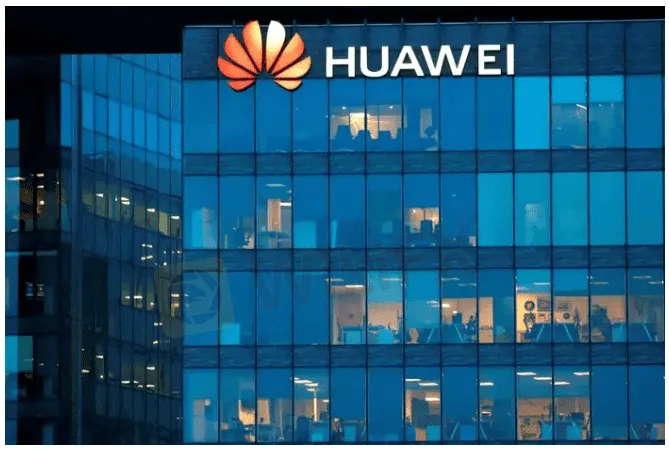简体中文
繁體中文
English
Pусский
日本語
ภาษาไทย
Tiếng Việt
Bahasa Indonesia
Español
हिन्दी
Filippiiniläinen
Français
Deutsch
Português
Türkçe
한국어
العربية
Chinas Huawei posts Q1 revenue drop, says handsets now more available
Abstract:China‘s Huawei Technologies said on Thursday its first-quarter revenues slipped 13.9% from a year earlier, with new business areas yet to reverse the company’s waning fortunes brought about by being placed on a U.S. sanctions blacklist.

The Chinese telecoms giant posted revenue of 131 billion yuan ($19.9 billion) in the first quarter, down from 152.2 billion yuan a year earlier, when it was already registering damage to its once dominant handset business.
The results were in line with forecasts, said Ken Hu, Huaweis rotating chairman.
“Our consumer business was heavily impacted, and our ICT (information and communication technology) infrastructure business experienced steady growth,” Hu said.
In 2019, the United States placed Huawei on an export blacklist barring it from accessing critical technology of U.S. origin, hurting its ability to design chips and source components from outside vendors.
A Huawei spokesperson said the company has taken measures to meet consumer demand for smartphones.
“Consumers can purchase Huawei smartphones more readily now including the latest best-selling models,” such as its flagship P50 and Nova series, the spokesperson said, without giving further details on chip and component supplies.
Huawei held just 6.2% of the China handset market in the first quarter, research firm Counterpoint Research said on Thursday.
The same quarter, Honor, a unit Huawei sold in December 2020, saw its market share rise to 16.9%.
Huaweis first-quarter net profit margin also fell 6.8 percentage points from a year earlier to 4.3%, a drop the company said was due to increased research and development spending and investments in business continuity, as well as the drop in revenue.
The company spent 142.7 billion yuan, or 22.4% of its total revenue, on R&D, it said in its 2021 annual report last month.
Huawei has identified helping businesses to use 5G technology, cloud computing and improving its energy efficiency as ways to bolster revenues, Hu said on Tuesday.
($1 = 6.5890 yuan)

Disclaimer:
The views in this article only represent the author's personal views, and do not constitute investment advice on this platform. This platform does not guarantee the accuracy, completeness and timeliness of the information in the article, and will not be liable for any loss caused by the use of or reliance on the information in the article.
Read more

The Dollar Keeps Falling: How Should We View Exchange Rate Volatility?
The U.S. dollar continues to weaken, triggering ripple effects across global markets. Beneath the currency’s depreciation lies a deeper crisis in its credibility, institutional foundation, and global financial status.

Are Trading Courses and Mentors a Fast Track or a Financial Trap?
In recent years, trading has become more popular than ever. Social media is full of people showing off their “trading lifestyle” with expensive cars, luxury holidays, and promises of easy money. Many of them claim to be mentors, investment coaches, or run online trading academies. They say they can turn beginners into full-time traders in just a few weeks. But is it true, or is it just a clever scam?

Gold Prices Pull Back, Near Four-Week Low Amid Easing Risk Sentiment
As risk aversion fades and investors turn their attention to U.S. inflation data, gold prices retreat sharply, falling to their lowest levels in nearly a month.

Using Any of These Illegal Forex Trading Apps? Stop Before It Turns into a Crisis
The Reserve Bank of India (RBI) has listed out some illegal forex apps India. Read this article to know some of those apps.
WikiFX Broker
Latest News
Core inflation rate rose to 2.7% in May, more than expected, Feds preferred gauge shows
Core inflation rate rose to 2.7% in May, more than expected, Fed's preferred gauge shows
Stablecoins go mainstream: Why banks and credit card firms are issuing their own crypto tokens
The Shame of Being Scammed: Don't Ever Stay Silent
Capital.com Launches $1 Million EU Client Insurance to Enhance Investor Safety
The five most investment-risky brokers in Malaysia
Citibank Sued in $20M Romance Scam Tied to Fraudulent Transfers
Treasury yields inch higher as investors await the Fed's preferred inflation print
Think Before You Trade! Unlicensed Brokers List Inside
5 Reasons to Stay Away from Core Prime Markets
Currency Calculator


